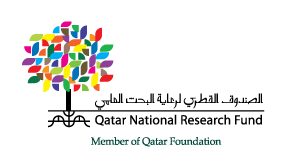The College of Law at Hamad Bin Khalifa University (HBKU) in collaboration with the University of Essex School of Law is hosting a two-day conference that will explore the challenges and opportunities in the digitalization of trade finance processes.
Held as a part of College of Law’s International Economic Law Seminar Series, the conference aims to provide a platform for multi-disciplinary dialogue between various stakeholders, including practitioners, policymakers, regulators and researchers. Discussions will address the need to adopt a more holistic approach to digitize trade finance.
Chairman’s Welcome Message
It is a great pleasure to welcome everyone to this conference on ‘Digitalizing International Trade Finance Process: Interrelationships, Constraints, Opportunities and Perspectives’. This conference presents pioneer work in the area of digitalizing international trade finance process, and has become more important, given many recent events.
The COVID-19 crisis and its impacts on all sectors of the economy show that companies and countries are intent on ensuring that crises do not put a stop to trade. Digitalizing the trade process is one of the first steps to help ensure that. Political and economic relationships, when severed, could also push countries to immediately seek new trade partners. Relying on current trade finance processes may delay these new trade relationships, with devastating impacts on the sustainability of countries. We observe this in the trade embargo between the State of Qatar and its GCC counterparts. Similar observation is seen in the ongoing crisis between Russia and Ukraine, and the significant adverse impacts on trade relationships. Digitalizing the trade finance process could help in speeding up the formation of new trade relationships.
In addition, the current trade finance process is fraught with acts of illicit financial flows (IFFs), due to heavy reliance on paper, human interactions and relationships. Digitalization reduces the need for human interaction and movement of papers from offices to offices, thereby significantly addressing the menace of IFFs present in the current trade process. Issues of environmental sustainability of digitalization are not lost on us, and the conference seeks to tackle this as well.
Thus, this international conference aims to explore the role of digitalization in trade processes generally and trade financing, specifically. The conference is part of a larger research project aimed at undertaking a comprehensive study of the digitalization of the entire trade process. Within the aim of investigating the possibility of digitalizing end-to-end trade finance process, the main goals of this conference are to develop a multi-disciplinary dialogue between various stakeholders, involving practitioners, policymakers, regulators and researchers; and discuss the key issues and problems from different perspectives and articulate tentative proposals for remedying them.
For two days, we will discuss topics relating to international trade law, digital innovation, economics, political economy, illicit financial flows, intellectual property law and business law. I sincerely welcome you all to this conference and the State of Qatar and look forward to an enlightening conference. I am grateful to the Qatar National Research Fund (QNRF) for the award of a grant to organize this very important conference.
Dr. Alexander P. Ezenagu
Assistant Professor, College of Law
Co-Chairman’s Welcome Message
I extend my warm welcome to all the speakers and delegates to the International Conference on Digitalizing International Trade Finance Process: Interrelationships, Constraints, Opportunities and Perspectives.
I would like to thank the Qatar National Research Fund (QNRF) for generously funding the conference, which is a joint initiative of the College of Law, Hamad Bin Khalifa University and the Law School of the University of Essex, United Kingdom.
I would also like to thank the College of Law, Hamad Bin Khalifa University, for the opportunity to collaborate, for hosting this conference and for the strong support it has provided to the research team. The conference is the first research collaboration event between our two institutions.
The Law School of the University of Essex, is well-known for excellence in research and education. With social justice as a common theme, the Law School (ranked in the World University Rankings 2022) is a home to world-leading experts in different areas of human rights law, public law, international law, sociolegal studies and commercial and business law. The Law School has developed a strong reputation for interdisciplinary studies in the field of law and technology.
Within the overall law and technology framework, this conference is an essential component of a new research project on “Digitalizing International Trade Finance”, which investigates the possibility of digitalizing the end-to-end trade finance process. This high-priority project will make significant contributions to knowledge, policy and practice in reframing regulatory and contractual compliance and other aspects of the law to be more suitable for technologies in contemporary international trade finance process. I hope this conference will provide a platform for developing a multi-disciplinary stakeholder dialogue between researchers, practitioners, policymakers, and regulators to discuss key issues and articulate insights and solutions for improving the legal and institutional framework at the national, regional and international levels.
I look forward to the conference and more collaborative research between the College of Law, Hamad Bin Khalifa University and the Law School of the University of Essex.
Dr. Onyeka Osuji
Head of the School of Law (Designate)
University of Essex, United Kingdom
Dean’s Welcome Message
The digital revolution has fundamentally changed how we relate to each other, whether in a social sense or in the business context. The COVID-19 pandemic accelerated the transformation as individuals and legal entities, including governments, increasingly engage with each other through wires, pixels, and data rather than through paper and in-person meetings.
These developments have profoundly shaped international trade and more specifically, the flow of money associated with it. To explore the legal aspects of these developments, College of Law is pleased to join the University of Essex School of Law in hosting this two-day conference titled Digitalizing International Trade Finance Process: Interrelationships, Constraints, Opportunities and Perspectives.
Offered as part of College of Law’s International Economic Law Seminar Series, the event examines a range of issues involving digitalization and trade, such as innovative technologies (e.g., cryptocurrencies, optical character recognition, AI, and robotics), challenges to regulation, sustainable finance and social justice, and the effect of these on Qatar and the region, as well as the world beyond.
I’d like to thank the co-organizers, my colleague Dr. Alexander Ezenagu, Assistant Professor of Law, and Dr. Onyeka Osuji, Professor of Law, University of Essex School of Law, for their dedication to organizing what promises to be a stimulating two days of discussion on a topic of substantial importance, particularly in light of recent world developments. I’d also like to thank the speakers and the Qatar National Research Fund (QNRF), for its generous support of the conference.
We are delighted that many speakers and other participants will be attending the conference in person at our iconic home, Minaretein, Education City, and we look forward to sharing our Qatari hospitality with you on your visit to Doha. And for those participating online we trust that the warmth of Doha as well as the substantive knowledge from the sessions will engage you regardless of your location.
Dr. Susan L. Karamanian
Dean, College of Law, HBKU
To attend in person, kindly contact: smonis@hbku.edu.qa
 |
 |





